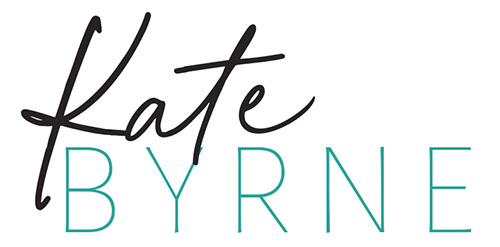Publication Standards
Publication Standards & Journalistic Code of Conduct
For KateByrneCo as part of our privacy policy, all explanations of the use of cookies and other data collection methods are detailed in our Privacy Policy.
OWNERSHIP & FUNDING DISCLOSURE
The podcasts, articles, and media publications on this site are wholly owned and funded by KateByrneCo and its donors and sponsors. KateByrneCo is the owner/operator of this website, and the podcast, videocast, and blog.
OUR EDITORIAL TEAM INFORMATION
In addition to our Podcast Host(s) and Editor(s), there are staff writers who edit and publish all Article submissions on the website blog. For all articles republished in other publications, those are subject to the Editorial guidelines for that publication as disclosed on their site.
OUR ETHICS CODE OF CONDUCT
Editors, reporters, podcasters, and writers employed by KateByrneCo podcasts and publications, adhere to the following standards of journalistic practice. In doing so, they pledge to:
- Maintain honesty, integrity, accuracy, thoroughness, and fairness in the interviewing, reporting, and editing of shows, articles, headlines, and graphics.
- Disclose any associations or conflicts of interest.
- Show distinction between news stories and editorials, columns, and other opinion pieces.
- Accept as their primary responsibility the selection of editorial content based on the listeners’ and readers’ needs and interests.
FACT-CHECKING & CORRECTIONS
Because all articles are written from the podcast interview transcripts, any inaccuracies may be the results of misstatements by our guests, hosts, and featured interview subjects. We are not responsible for fact-checking each and every statement that is made because those statements are part of editorials or opinion pieces. However, should a listener, reader, or interview subject ask for reasonable corrections, those will be made at the sole discretion of our Editorial Staff.
OUR PREFERRED PRACTICES GUIDE
Gifts
- Writers and Editors should not accept any gifts or favors in excess of $50 from companies or associations they cover, their public relations representatives or any other person or organization related to companies they cover.
- Editors may accept occasional meals and refreshments in the course of business
- Editors may accept products or service access submitted for review.
- Editors should not accept payment of travel and hotel expenses incurred in the course of performing editorial duties from any source other than Podcasters United, Inc.
Outside Activities
- Because editors are expected to speak as authorities within their markets, they may accept invitations to appear on television, radio and other electronic media and may accept payment upon approval of editorial management.
- Editors should not accept payment of any kind for making speeches, judging contests or making appearances at functions held by companies or associations they cover.
- Reimbursement of reasonable expenses incurred in connection with such speeches may be accepted.
- Editors may also accept speaker gifts of nominal value for participating in such
Relationship with Clients and Advertisers
- Selection of editorial topics, treatment of issues, interpretation and other editorial decisions must not be determined by clients or advertisers
- Editors must never permit featured subjects, clients or advertisers to review articles prior to publication.
- Advertisers and clients must never receive favorable editorial treatment because of their economic value to the company. Similarly, non-clients or non-advertisers should not receive unfavorable editorial treatment or be excluded from articles because they do not pay. This provision applies not only to stories and articles but to all products of the editorial group, including lists, rankings, product or company of the year awards and other such special features and events.
- Editors must have the right to review, prior to publication, all sponsored content and other advertiser-supplied content.
SEPARATION OF SPONSORED ADVERTISEMENTS AND EDITORIAL
- Editors must make a clear distinction between editorial and advertising for KateByrneCo sponsors and partners. Editors have an obligation to readers to make clear which content has been paid for, which is sponsored, and which is independent editorial material. All outside paid content that may be confused with independent editorial material must be labeled as such.
- With respect to special advertising supplements or advertorials: The words sponsored, advertising, advertisement, special advertising supplement or similar labeling must appear at the top of every page with the related content.
- The layout, design, typeface and style of special advertising sections or custom publishing products must be distinctly different from those of the publication.
- Special sponsored or advertising sections or features must be displayed in such a way that users will not confuse them with editorial content.
- All online pages must clearly distinguish between editorial and advertising or sponsored content. Non-editorial must be clearly labeled. The publication or organization’s name or logo should not be used in any way that suggests editorial endorsement of any outside advertiser. The site’s sponsorship policies must be clearly noted, either in text accompanying the article or on a disclosure page to clarify that the sponsor has had no input regarding the content.
- Hypertext links that appear within the editorial content of a site, including those within graphics, are solely at the discretion of the editors. Links within editorial should never be paid for by outside advertisers. However, links for sponsor-provided special (free) content are allowed.
If you have any questions or concerns about these KateByrneCo Publication Standards, please Contact Us.
